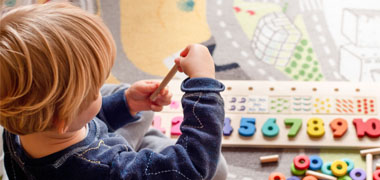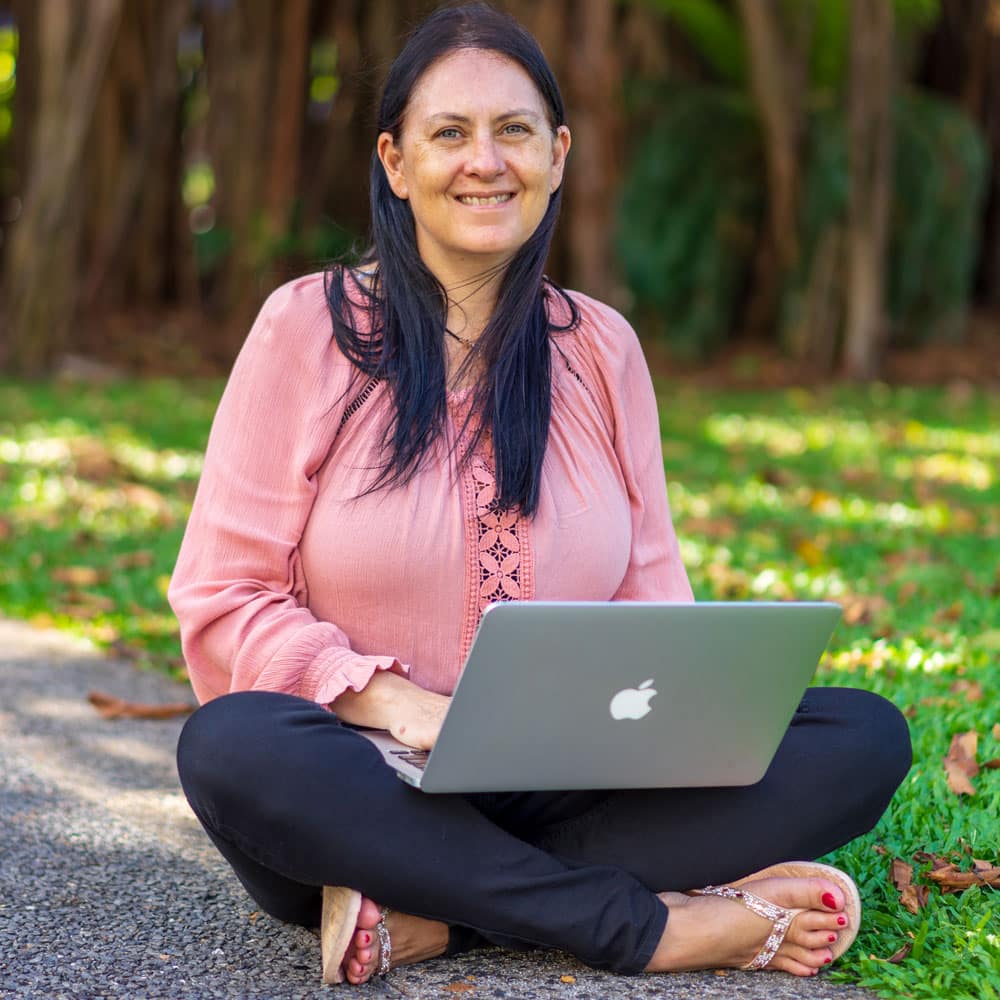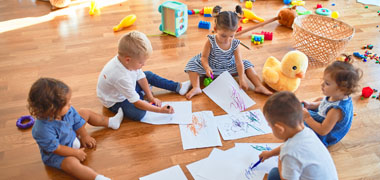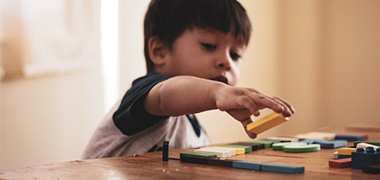
Popular courses in Early Childhood Education
Career Opportunities
Popular careers in early childhood education include roles such as:
Career Pathfinder
Skills shortages + AI Exposure
Discover in-demand careers and understand how each role may be impacted by AI and automation.
- See in-demand occupations across Australia
- Check AI Exposure ratings
- Compare training duration and average income
Common questions
Early childhood qualifications in Australia include child protection awareness training but these skills must be updated every year. In most states you can complete online refresher training through the state education authority but you can also complete Child Protection Bridging Courses to meet your duty of care.
 Melinda Irvine
Melinda Irvine
Studying early childhood education is not necessarily difficult but it can be challenging. You will learn a lot about child behaviour as well as the duty of care and legal responsibilities of an early childhood educator. During your studies, you will have to complete written assignments and you will be tested on your understanding of the early childhood curriculum and learning framework in your state or territory. You will also need to do a supervised work placement and complete a practical assignment while you are there.
 Melinda Irvine
Melinda Irvine
Before you can graduate from your ECT qualification you need to complete an unpaid work placement at an approved pre-school, kindergarten, or childcare centre. You must be supervised by qualified staff and have them sign-off on your project portfolios as you complete different tasks. Work placement hours are currently:
- Certificate III in Early Childhood Education and Care - 160 hours
- Diploma of Early Childhood Education and Care - 280 hours
- Bachelor of Early Childhood Education - 80-90 days
 Melinda Irvine
Melinda Irvine
It takes 12 months to complete the Certificate III in Early Childhood Education and Care which is the minimum requirement to become an early childhood educator. However, you can begin casual work before you have completed your qualification.
 Melinda Irvine
Melinda Irvine
You can find the latest salary and employment information for early childhood educators on Jobs and Skills Australia using the following links:
- Early childhood teacher (ECT) — average salary for degree-qualified ECTs working at pre-schools or kindergartens and registered with their state education body.
- Child Carers — average salary for early childhood educators with VET qualifications (Certificate IV or Diploma). These figures also include the average salaries of family day care workers, nannies, and out of school hours care workers.
 Melinda Irvine
Melinda Irvine
In most Australian states and territories, early childhood education qualifications are on the list of fee-free courses and subsidised trainings. You can check your eligibility for government funding by using this free tool or better still, enquire with a course training provider for personalised information. If you are eligible, you won’t have to do anything at all, the cost of your studies will be automatically reduced when you enrol. Sometimes the courses are completely fee-free — but that will depend on your age, where you live, and if you have completed other qualifications in the past.
 Melinda Irvine
Melinda Irvine
To get a job you must have a Working With Children Check (WWCC) and a National Police Check (NPC) that is less than 3 months old. Most organisations also expect current First Aid and CPR certificates. It’s definitely worthwhile doing anaphylaxis and emergency asthma management training and one of the best options is to complete the nationally recognised short course Provide First Aid in an Education and Care Setting because it covers Asthma & Anaphylaxis as well as CPR. Another helpful certificate is Food Handling because many early childhood educators have to prepare basic meals and snacks for the kids.
 Melinda Irvine
Melinda Irvine
If you hold an overseas qualification you will need to have it assessed for equivalence by the Australian Children’s Education & Care Quality Authority (ACECQA) before you can work in the sector. You can learn more about this process on the ACECQA website, but if you are currently located outside Australia you should first contact the Department of Home Affairs?.
 Melinda Irvine
Melinda Irvine
Early childhood education in Australia is a regulated sector and there are three standard qualifications:
- Certificate III in Early Childhood Education and Care
Average duration: 12 months - Diploma of Early Childhood Education and Care
Average duration: 18 months - Bachelor of Early Childhood Education
Average duration: 4 years
 Melinda Irvine
Melinda Irvine
To work in early childhood education you need to be a very empathetic and understanding person. Having a long list of qualifications is great, but your genuine passion for the development and care of young children is what really makes a great childcare worker.
 Nick Preston
Nick Preston
Don’t wait to finish your course qualification before getting a job in the early childhood education sector. Here at Earlyhood Recruitment in Sydney, we invite students who have already completed one third of their early childhood qualification to register for casual work and temp opportunities with our specialist agency. To get a full-time job you will need professional experience outside of your work placement and taking on short-term and casual work is excellent for your resume and future employment opportunities.
 Nick Preston
Nick Preston
Yes, absolutely! The early childhood education sector is traditionally the domain of women but in recent years a lot of men are getting their ECT qualifications. Male early childhood educators are definitely making a valuable contribution to the industry.
 Nick Preston
Nick Preston
Further reading


How to start a career in Early Childhood Education
27th November 2021
Career Spotlight: Early childhood educators and teachers
27th August 2019All courses
More about Early Childhood Education courses
The field of Early Childhood Education offers a range of opportunities for individuals in Australia looking to make a positive impact on young lives. Aspiring educators can start their journey with beginner courses such as the Certificate III in Early Childhood Education and Care or the more specialised Certificate III in Early Childhood Education and Care (Family Day Care), both of which are widely recognised as essential qualifications in the sector. Students can find various training providers, such as South Regional TAFE and WAYS Youth Training, offering these courses locally, ensuring accessible education for those aiming to become Early Childhood Educators or Childcare Assistants.
For those who already have experience in the field and are looking to advance their career, advanced courses are also available. Options include the Diploma of Early Childhood Education and Care and a range of bachelor’s and master’s degrees such as the Bachelor of Early Childhood Education. These programs are provided by notable institutions like Curtin University and The University of Melbourne. Graduates from these programs are well-prepared to take on roles such as Early Childhood Teachers or Kindergarten Teachers.
In addition, practical skills are also emphasized through short courses, including vital training in first aid. Courses like Provide First Aid and Provide Basic Emergency Life Support are essential for ensuring safety in an early childhood education environment. Training providers such as Red Cross and ETC Training Solutions offer these crucial certifications, equipping educators to handle emergency situations effectively.
Embarking on a career in Early Childhood Education is not only rewarding but also plays a significant role in shaping the future of children. With a variety of pathways available—from beginner courses to advanced qualifications—prospective learners can identify the right course for their career aspirations. Explore the full list of Early Childhood Education courses on Courses.com.au and take the first step towards becoming a leader in this vital profession. Whether you aspire to become a Childcare Centre Manager or continue as an Nanny, there is a course to help you achieve your goals.
